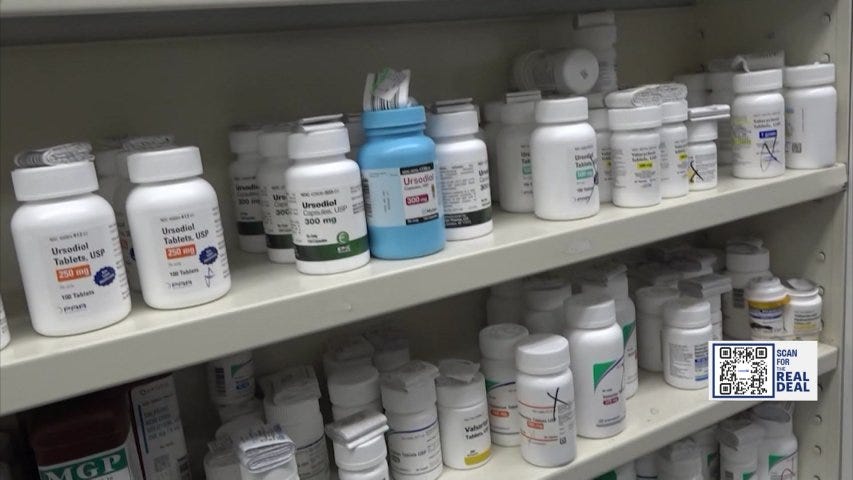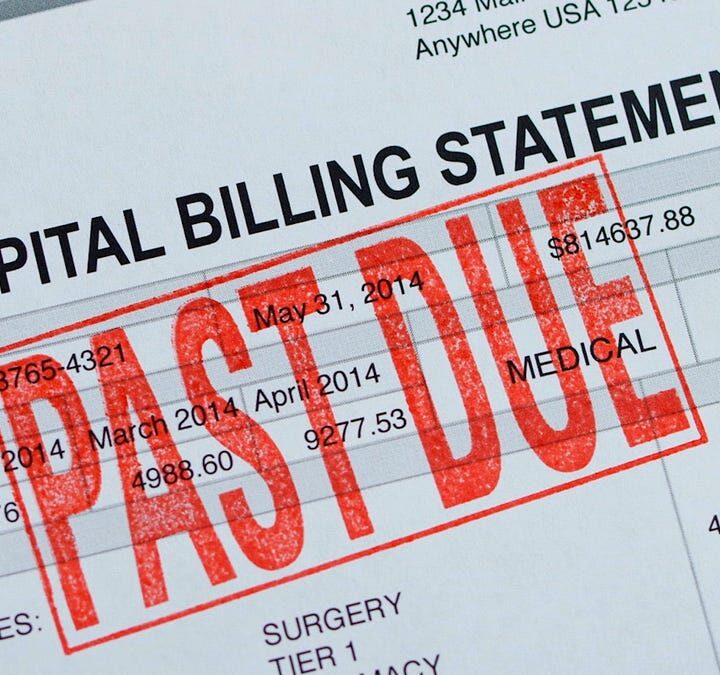Biden administration issues rule blocking medical debt from credit reports
A new rule being implemented by the Joe Biden White House will eliminate medical debt from appearing on 15 million Americans’ credit reports. (Scripps News)
Scripps News
If you are one of the 20% of all Americans who have outstanding medical debt, according to the Consumer Financial Protection Bureau, there’s good news.
The debt is still there, sorry. But thanks to a new rule put in place by the CFPB, an estimated $49 billion of it will be removed from the credit reports of about 15 million Americans and no longer count against your credit ratings, allowing more people to qualify for loans, mortgages and more.
“The rule will increase privacy protections and prevent debt collectors from using the credit reporting system to coerce people to pay bills they don’t owe,” the CFPB said in a release Tuesday. The rule also bans lenders from using medical information when they make lending decisions.
Florida second in medical debt in US
That could affect a lot of people in the Sunshine State. According to a 2022 report from the CFPB, Florida had the second-highest total medical debt, $8.213 billion, as of December 2020. First was Texas, with $14.608 billion. At the time, Floridians had an average of $2,262 in outstanding medical debt,
Medical debt could be why some Floridians didn’t get mortgage loans
Research by the CFPB found that medical bills contribute to “thousands of denied applications on mortgages that consumers would be able to repay,” as a medical bill on a person’s credit report is “a poor predictor of whether they will repay a loan.”
The CFPB said the agency expects an additional 22,000 people will be approved for mortgages every year.
“People who get sick shouldn’t have their financial future upended,” said Rohit Chopra, the agency’s director, in a statement.

Ways to avoid medical debt when you are sick
The bills can add up when you are sick and that leads to many people getting hit with medical debt. Here’s how to avoid it.
News 12
How much will removing medical debt help my credit rating?
The CFPB said that Americans with medical debt on their credit reports could see their credit scores rise by an average of 20 points.
The three nationwide credit reporting conglomerates, Equifax, Experian, and TransUnion, had already started removing certain types of medical debt from credit scores after the CFPB first raised concerns in 2022. This rule eliminates them entirely.
What does the new medical debt rule do?
Under the new rule:
- Lenders may not consider medical information. Creditors are no longer permitted to use certain medical information in making lending decisions, nor may they use information about medical devices that could be used to require the devices serve as collateral for a loan.
- Consumer reporting agencies may not include medical debt information on credit reports or credit scores sent to lenders. The CFPB says this will help end the practice of using the credit reporting system to coerce payment of bills regardless of their accuracy. Lenders will still be able to consider medical information to verify medical-based forbearances, verify medical expenses that a consumer needs a loan to pay, consider certain benefits as income when underwriting, and other legitimate uses.
When does the new medical debt rule go into effect?
60 days after it is published in the Federal Register.
Can Trump block the new medical debt rule?
The problem with any changes put in place during the end of the Biden administration is that they may be undone by the incoming Trump administration, and the change already has opposition. Several of Trump’s advisors and Cabinet nominees have expressed dissatisfaction with the goals and even existence of the CFPB in the past.
Opponents of the new rule, including some congressional Republicans and banking industry leaders, contend the changes will ultimately harm consumers.
If lenders can’t take medical debts into account, they “may extend credit on which borrowers are more likely to default,” to the ultimate woe of consumers and the financial system, said the Bank Policy Institute and Consumer Bankers Association, in a joint statement to the federal agency in August.
The rule change could force doctors to collect payments for costly treatments upfront, according to comments submitted to the agency last year. Financially fragile medical practices in rural communities could be driven out of business.
Some seniors face crushing medical debt
The consumer agency has focused on medical debt in recent years as a key source of financial hardship. In an earlier report, the watchdog group found that seniors, alone, faced more than $50 billion in unpaid medical bills, many of which they should not have to pay. Debt collectors often pursued seniors for money they didn’t actually owe.





